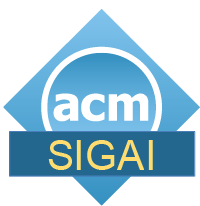Artificial Intelligence / Operations Research Workshop
September 23-24, 2021
Virtual Event
Zoom Meeting
Event Contact
Ann Schwartz Drobnis
adrobnis@cra.org
2022530381
Event Type
2021 Events, 2021 Visioning Activities, Visioning Activities
Event Category


This is a virtual workshop sponsored by the Computing Community Consortium (CCC), the Institute for Operations Research and the Management Sciences (INFORMS) and ACM SIGAI to create a joint vision for fusing the Artificial Intelligence (AI) and Operations Research (OR) communities to be held on September 23-24th, 2021.
This workshop focuses on exploiting the synergies of the AI and OR communities to transform decision making. The goal of this workshop is to establish a joint strategic vision for AI/OR that will maximize the societal impact of AI and OR in a world that is bound to undergo significant changes due to the COVID-19 pandemic, widening inequalities, and challenges in resilience and sustainability in the food-water-energy nexus.
The two communities have complementary strengths whose synergies have started to emerge. Indeed, in its quest to build intelligent agents, the AI community has always been quick to borrow methods and technologies from other fields. Machine learning has adopted, refined, and expanded optimization algorithms that originated from the OR community, including stochastic gradient descent and convex optimization. The hybridization of constraint programming, mathematical programming, and satisfiability has been an active research topic in both communities for more than two decades, resulting in massive improvements in optimization solvers. In his AAAI presidential address, Thomas Dietterich argued for taking ”Steps Toward Robust Artificial Intelligence”, a challenge that would benefit from the substantial body of work in decision making under uncertainty originating in the OR community. AI also has much to offer to the OR community. Machine learning is bound to transform the next generation of optimization solvers and create a new generation of optimization algorithms. The cross-fertilization between AI and OR may also create breakthroughs in reinforcement learning and multi-agent coordination and optimization.
There are however barriers and difficulties in realizing this vision due to cultural differences between AI and OR. Some of the challenges are obvious. The two fields use different vocabulary for the same concepts, e.g., reinforcement learning in AI and (approximate) dynamic programming in OR. The missions of the two fields has also been quite distinct: whereas AI focuses on building intelligent agents, OR has traditionally focused on process improvement to enhance quality of service or efficiency. The two fields have also focused on different application areas, which makes communication and knowledge transfer more difficult.
This workshop is the first in a three-part series aimed at overcoming these difficulties and providing a stepping stone for a strong and sustained collaboration between the two fields. The respective goals of each workshop are: (1) articulating a strategic vision; (2) Implementing a strategic vision: and (3) Progressing the strategic vision. This workshop focuses on the first step, articulating a strategic vision. It has the following goals:
1. to review the state of AI/OR along several axes;
2. to articulate a number of high-level research and education opportunities for each of these axes;
3. to identify potential grand challenges of mutual interest that would bring research and industry together; 4. to select a few topics for summer schools and research programs to foster an AI/OR collaborations.
Grand challenges may be fundamental societal problems for which an AI/OR approach has significant promise and/or scientific advances that would fundamentally transform both fields. The grand societal challenges may be in areas such as resilient supply chains, sustainable energy, health care and crisis management, equitable transportation, and the modeling of human behavior. The workshop will invite thought leaders from both fields and balance a variety of considerations to create a stimulating, diverse, and inclusive forum for creating this joint vision.
Workshop Organizers:
Sanmay Das, George Mason University |
John Dickerson, University of Maryland |
|
Pascal Van Hentenryck, Georgia Tech |
Sven Koenig, University of Southern California |
|
Ramayya Krishnan, Carnegie Mellon University
|
Radhika Kulkarni, SAS Institute, Inc. (retired) |
Phebe Vayanos, University of Southern California

The meeting will all be virtual. We will send out more detailed workshop information and logistics the week of.
 The CCC Hybrid Workshop on Best Practices for Hybrid Workshops
The CCC Hybrid Workshop on Best Practices for Hybrid Workshops









